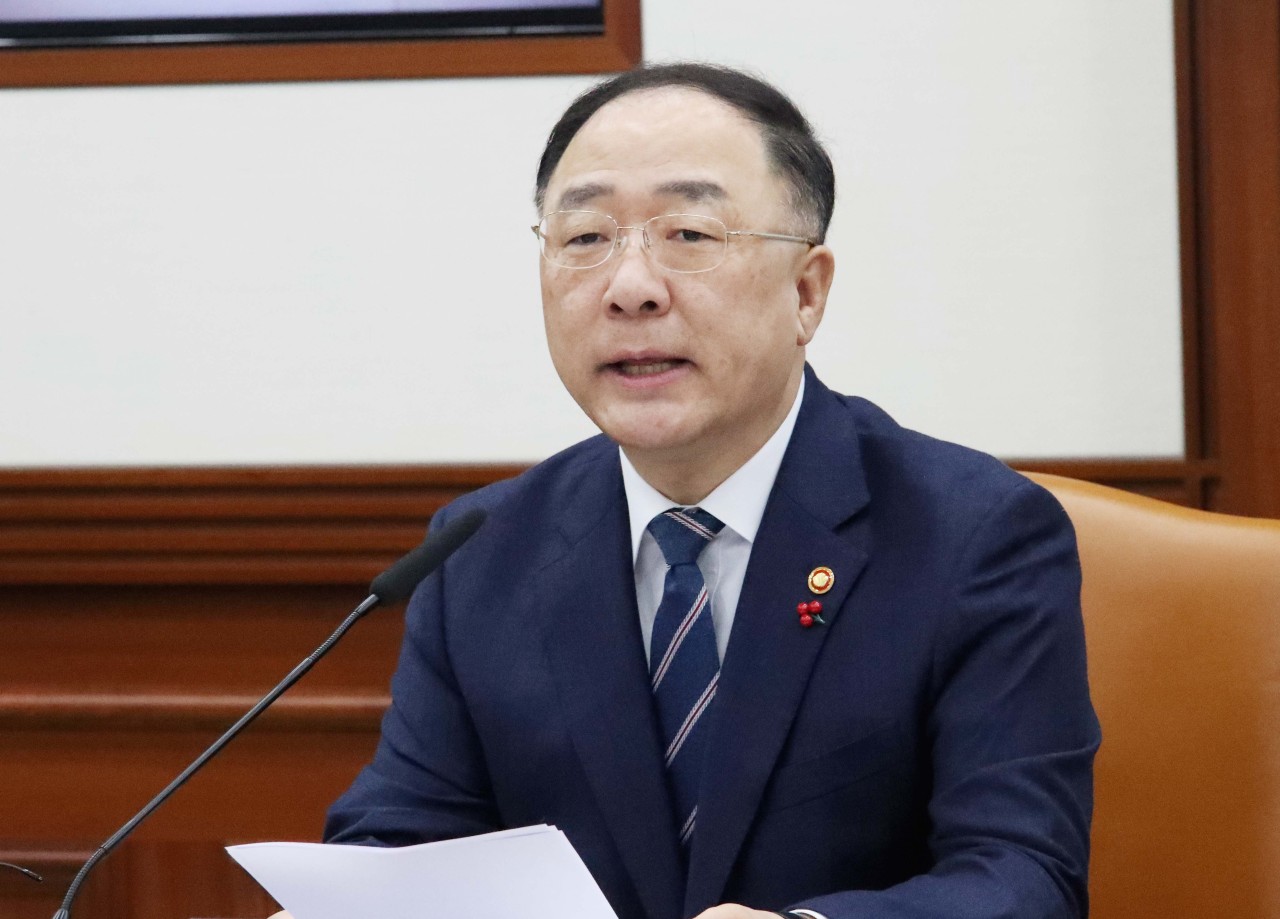Minister confirms frontloading of public spending
But government reduces amount of budget to be spent in first half, citing time constraints
By Bae HyunjungPublished : Jan. 8, 2020 - 15:36
South Korea has allocated more than 60 percent of its state budget for the first half of the year, in a rush to revitalize the stalled economy through active fiscal spending, the finance minister said Wednesday.
Though this latest figure was down from an earlier suggested target of 71 percent, the government said the front-loading policy was crucial to achieve an economic rebound.
Though this latest figure was down from an earlier suggested target of 71 percent, the government said the front-loading policy was crucial to achieve an economic rebound.

“(The government) will make all-out efforts to execute the economic revitalizing budget as swiftly as possible and the welfare budget at the proper time,” said Deputy Prime Minister and Finance Minister Hong Nam-ki in a policy meeting with economy-related ministers held at Seoul Government Complex.
The event was attended by Deputy Prime Minister and Education Minister Yoo Eun-hae, Interior Minister Chin Young, Land Minister Kim Hyun-mee, Financial Services Commission Chairman Eun Sung-soo, Welfare Minister Park Neung-hoo and SME Minister Park Young-sun.
The government intends to spend 62 percent of the budget by end-June and 37 percent of its job creation budget by end-March, the fiscal chief said, announcing the record-high half-year fiscal spending ratio.
In late December, Prime Minister Lee Nak-yon had suggested spending 71 percent of the budget during the first half, but the figure was adjusted considering the fiscal clock.
“Time may be running short to execute the (target) 71 percent of the budget within the first half,” said Rep. Lee Hae-chan, leader of the ruling Democratic Party of Korea, Monday in a trilateral meeting with representatives of the government and Cheong Wa Dae.
Acknowledging the need to slow down the planned spending, Lee urged the central and provincial governments to cooperate fully on the fiscal front-loading initiative.
Despite the downward adjustment, the plan is expected to trigger growth, especially in light of the supersized budget of 512 trillion won ($436.8 billion) for this year.
It is the government’s forecast that the economy will grow 2.4 percent this year, up from last year’s estimated 2 percent expansion, on the back of a recovery in the memory chip market and policy moves.
The volume of investments by public institutions will climb to 60 trillion won, up from 55 trillion won in 2019, according to the minister.
“(The government) will focus investments on social overhead capital such as new town development and energy projects such as power plant construction,” Hong said.
The ministry also pledged to reduce the lengthy preliminary assessment period for large investment projects to seven months or less, in an effort to remove regulation hurdles.
As for the budget related to welfare programs, Hong said that the Ministry of Economy and Finance will hold a monthly meeting to review the progress of budget execution to ensure a timely fiscal input to individual projects.
Addressing the sharply escalating military tensions in the Mideast, following the US airstrike which killed Iranian commander Gen. Qassem Soleimani last week, Seoul has reinforced its watch on financial markets, the deputy prime minister added.
By Bae Hyun-jung (tellme@heraldcorp.com)




![[Herald Interview] 'Amid aging population, Korea to invite more young professionals from overseas'](http://res.heraldm.com/phpwas/restmb_idxmake.php?idx=644&simg=/content/image/2024/04/24/20240424050844_0.jpg&u=20240424200058)











![[KH Explains] Korean shipbuilding stocks rally: Real growth or bubble?](http://res.heraldm.com/phpwas/restmb_idxmake.php?idx=652&simg=/content/image/2024/04/25/20240425050656_0.jpg&u=)

